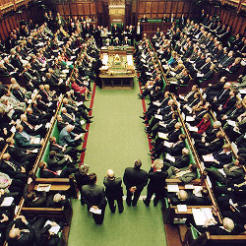There is no need to change the public benefit test used during charity registration, according to charity lawyers Bates Wells & Braithwaite (BWB) in its submission to Lord Hodgson's Charities Act review.
The flexibility of the definition and interpretation of "public benefit" in the current test "is the means by which charity law has developed progressively", the lawyers said in what is believed to be the only submission to Lord Hodgson's review by a legal firm, shared exclusively with civilsociety.co.uk.
"This area is not straightforward," they said, "and while it might seem laudable to have a clear statutory definition of public benefit - nobody has yet been able to come up with a suitable one. The formulation we currently have in the Act which is based on case law is therefore best left as is."
However the amendments to the Charities Act had not been without merit, the lawyers advised: "The Charities Act 2006 certainly refocused attention on public benefit as an issue central to the duties of a charity trustee."
Commenting on the effects of changes to the Charities Act imposed in 2006 that were designed to remove the presumption of public benefit for education, religion or anti-poverty charities, BWB said that it was "difficult to tell" if this had been effective. The lawyers highlighted the disparity between the recent charity tribunal case with the Independent Schools Council where parts of the Commission's guidance relating to fee charging were struck out, and the lack of subsequent revisions to guidance by the Charity Commission.
The Charity Commission confirmed that amendments on this matter have not yet been put out for consultation.
Additional charitable areas
Similarly the lawyers believe it is too early to tell whether desired areas of expansion brought in with the Act have been achieved, such as within the charity and sport category, but added that there are other areas that could be included by clarifying the definition of 'charity'. Social finance could be facilitated as a result, the firm advised, and certain areas of journalism "deserve recognition as charitable objects in their own right," it added.
While BWB doesn't believe 'public benefit' needs a clearer definition, it does point to contrasting definitions of 'charitable purpose' within the Charities Act 2011 which have yet to be addressed.
"This was identified as an issue during the consolidation exercise leading to the Charities Act 2011, but could not be rectified as it went beyond the remit of the consolidation exercise," it said. "The opportunity should now be taken to remove this anomaly and clarify the drafting for the lay audience."
Lord Hodgson is expected to present his completed review of the Charities Act 2006, which will consider further changes to the legal and regulatory framework for charities, to Parliament ahead of the summer recess this year.









